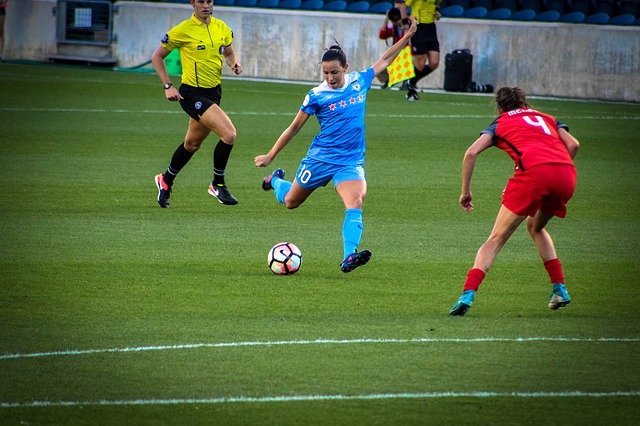Women's Soccer: Appreciating the Wins
With all the political talk we hear about equal pay and a general lack of respect compared to male counterparts, it may be easy to lose sight of just how far Women's soccer has actually come as a sport in its relatively short life.
A brief history of the sport shows just how much of a journey it has been. From a 50 year ban by the English Football association that grounded the sport all over the World up till 1971, to hosting the very first FIFA Women's World Cup Tournament in 1991, some Sixty years after the men.
We talk about interest and gaining enough organic popularity to attract big remunerations, but the level that these women have been able to reach in such a short amount of time is really worth highlighting. In terms of popularity, the sport is growing. Over 1.1 Billion people watched the 2019 women's World Cup in France for instance.
Professionalism has also set it, allowing for talented female Footballers to make a career off their talents. Perhaps the Greatest female Footballer of all time. the Brazilian Marta has shown what is possible for female footballers, making some big money moves over the course of her career. While it still pales in comparison with what the Men earn, particularly in the big leagues, it was previously unheard of for female footballers to earn such amounts and therefore needs to be acknowledged.
There has also been some noticeable steps by regulatory bodies to try and expand the game. While I often flay regulatory bodies for being too involved in the rules and regulations of the presided sport, I can't fault genuine moves being made to expand the game. Take for instance Africa recently introduced a regional tournament for professional Female clubs, for the first time in history. This feat, coming in 2021 is actually outstanding when you consider many nations on the continent barely had any professional sides as close as 10 years ago. There is also the expansion of participating teams in the Women's World cup tournament from 24 to 32 teams which should bring even more visibility to the sport.
Furthermore, the on-field playing style has also greatly improved. We are rapidly progressing pass the days of school-boy errors on the part of some teams, often leading to lopsided and uncompetitive score lines. The women's game is becoming more developed across all regions, and greater application of tactics is now applied in deciphering how to beat teams.
Of course challenges remain in the sport, and for me I think the major issue isn't remuneration yet, but marketing. There is need to grow the sport across the World to the extent that extremely talented footballers such as Marta can become Icons similar with some big names of the men's sport. An increase in wages will follow as a natural consequence of growth, and not as something forced down by politics.
Conclusion
We have come a long way no doubt, and all the achievements have been made even more relevant considering the relatively short amount of time it was achieved. The future is bright for Women's Soccer, and I think the sport is going to operate with an entirely different image in the coming decades.

I'm both excited and slightly depressed about the situation.
Having the right is amazing but, having to fight for the rights that are yours already seems to be holding back things that we can do with the power at hand.
!PIZZA
!LUV
I love the way that you cover topics and I'm taking notes...
@yablonsky(1/1) gave you LUV | wallet | market | connect | <><
Thank you
PIZZA Holders sent $PIZZA tips in this post's comments:
@yablonsky(2/10) tipped @empress-eremmy (x1)
Learn more at https://hive.pizza.
The BBC give almost as much precedence to the womens game as they do the men's now. ALl the results and match reports are there from the top league and European competitions. Good to see and long may it continue as it will surely encourage more girls and women into football and sport in general :-)
The key thing is interest. Once more people start getting interested I think the potential for growth is simply limitless